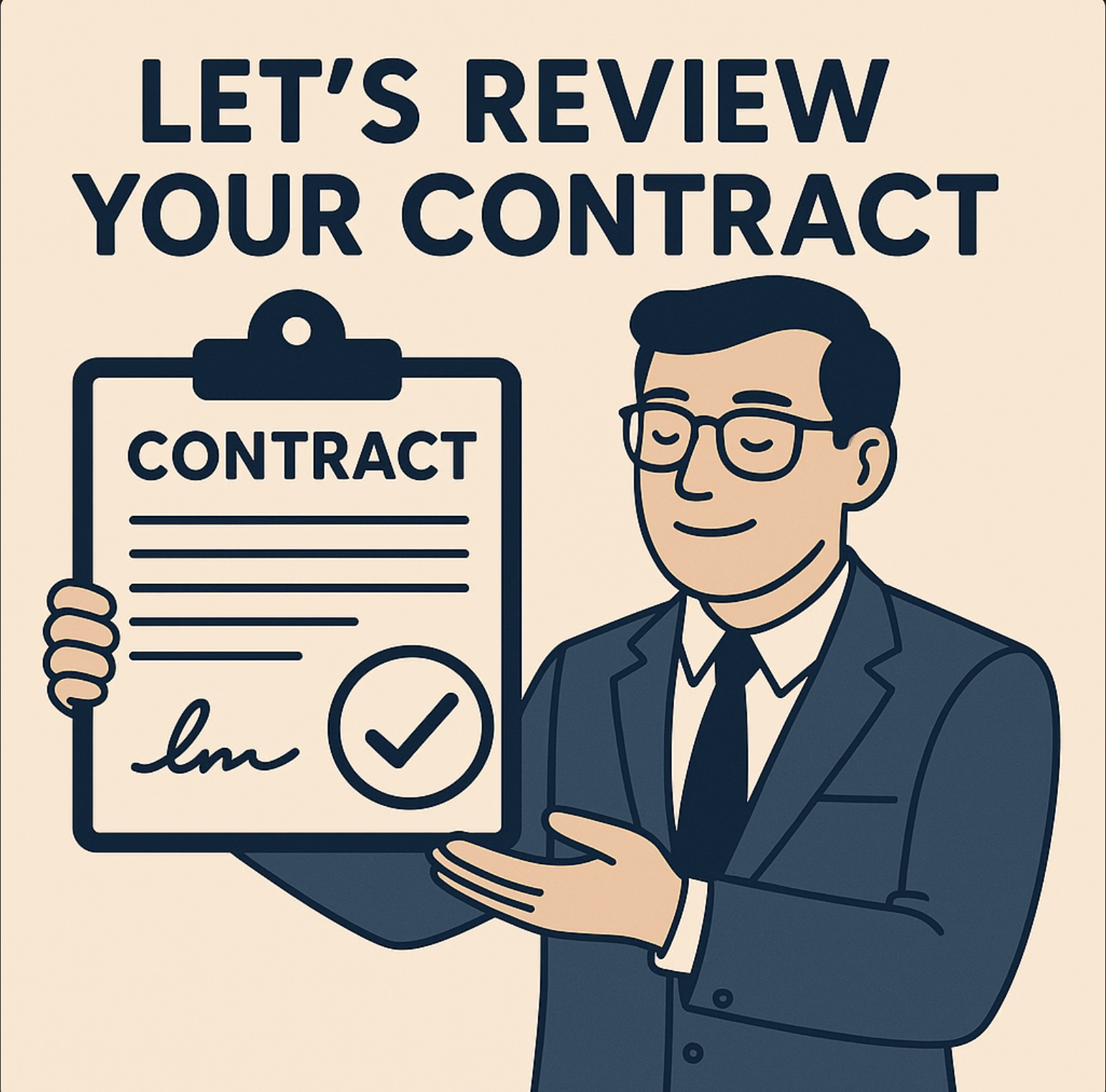Why a Contract Needs to be Reviewed: Beyond the Dotted Line
In the fast pace of business, it can be tempting to view a contract as a mere formality – a document to be signed quickly so work can begin. You’ve discussed the main points, everyone seems to be on the same page, so why spend precious time scrutinizing dense legal text? This “why bother?” attitude, however, can lead to significant risks and future regrets. A contract isn’t just a piece of paper; it’s a legally binding commitment that outlines rights, responsibilities, and consequences.
This “Talk on Why a Contract Needs to be Reviewed,” an approximately 8-minute read, aims to illuminate why dedicating time and attention to reviewing every contract is not just good practice, but an essential component of sound business management and risk mitigation.
The Primary Goal: Understanding What You’re Committing To
At its most fundamental level, contract review is about comprehension. You cannot intelligently agree to something you don’t fully understand.
- Clarity on Your Obligations and Rights: What exactly are you promising to deliver, perform, or pay? What are the deadlines and standards you must meet? Conversely, what are you entitled to receive from the other party? A thorough review ensures you grasp the full scope of your commitments and entitlements, preventing accidental breaches or missed opportunities.
- Identifying Ambiguities and Omissions: Contracts filled with vague terms like “reasonable efforts” or “timely manner” without further definition can be interpreted in multiple ways, often leading to disputes. Similarly, what isn’t in the contract can be as important as what is. A review can help identify missing clauses or unaddressed scenarios that could become problematic later.
- Ensuring Alignment with Your Intentions: Does the written document accurately reflect the verbal discussions and the spirit of the deal you believe you made? It’s not uncommon for misunderstandings or miscommunications to creep into the drafting process. Review is your chance to catch these discrepancies before they become binding.
Spotting Red Flags and Mitigating Risks: A Deeper Dive
A diligent review goes beyond basic comprehension; it’s an active search for potential pitfalls and an opportunity to mitigate risks. This is where understanding various contract clauses, as we’ve discussed in previous talks, becomes vital:
- Unfair or One-Sided Terms: Look for clauses that disproportionately benefit the other party. This could be overly broad indemnification clauses (where you agree to cover their losses in many situations), restrictive termination rights that make it hard for you to exit the agreement, or imbalanced liability limitations.
- Problematic Payment Clauses: Are payment schedules unclear, unrealistic, or tied to subjective milestones? Are there unfair penalties for late payment by you, but no reciprocal terms for late payment by them? Is there clarity on currency, taxes, and who bears transaction costs? (As discussed in “A Talk on Payment Clause”).
- Inadequate Protection for Confidential Information: If you’re sharing sensitive data, does the contract clearly define what’s confidential? Are the recipient’s obligations to protect it (non-disclosure, limited use, security measures) strong enough? Is the duration of confidentiality appropriate? (Covered in “How to Secure Your Confidential Information in a Contract”).
- Unfavorable Force Majeure Provisions: Does the clause adequately protect you if genuinely unforeseen and uncontrollable events prevent you from performing? Or is it too narrow, leaving you exposed? Conversely, does it give the other party too easy an out? (Detailed in “A Talk on Force Majeure”).
- Burdensome Enforcement or Dispute Resolution Clauses: Where and how will disputes be resolved? An agreement might specify a distant jurisdiction (making legal action costly and inconvenient) or mandate expensive arbitration procedures. (Linking back to “A Talk on Contract Enforcement”).
- Hidden Costs or Unforeseen Liabilities: Review can uncover fees, penalties, automatic renewal clauses, or other financial or operational responsibilities that weren’t immediately obvious from initial discussions.
The Tangible Benefits of a Meticulous Review Process
Investing time in contract review yields significant advantages:
- Preventing Future Disputes: Identifying and addressing potential issues before signing is almost always less expensive, less stressful, and less damaging to business relationships than trying to resolve a breach or disagreement later.
- Empowering Negotiation: You can only negotiate what you understand and have identified as a concern. A thorough review highlights areas where you can request changes to create a more balanced and favorable agreement.
- Protecting Your Interests and Assets: The ultimate goal is to ensure the contract safeguards your business, financial position, intellectual property, reputation, and overall strategic objectives.
- Ensuring Basic Compliance Awareness: While not a full legal compliance audit, reviewing a contract can help you spot terms that might obviously conflict with fundamental business ethics or raise red flags regarding regulatory matters, prompting further inquiry.
- Achieving Peace of Mind: Knowing that you have diligently examined the terms and fully understand the agreement you are entering into provides a solid foundation for the business relationship.
Who Holds the Magnifying Glass? Roles in Contract Review
Effective contract review can be a multi-layered process:
- Yourself (The First Pass): As the person closest to the business deal and your objectives, your initial review is crucial. You understand the commercial context and what you hope to achieve.
- Key Team Members: Depending on the contract’s nature, involve relevant department heads. Your finance team can scrutinize payment terms, operations can assess feasibility of performance obligations, and technical leads can review specifications.
- Legal Professionals: For contracts that are complex, high-value, high-risk, or contain unfamiliar legal language, engaging a lawyer is indispensable. They are trained to identify legal risks, interpret complex clauses, ensure enforceability, and advise on current legal standards – aspects you might easily miss.
Practical Tips for More Effective Contract Review
- Don’t Rush: Give yourself ample time. Pressure to sign quickly is a red flag in itself.
- Read Every Word: Yes, even the “boilerplate” (standard clauses at the end) and any appendices or referenced documents. These can contain critical obligations.
- Take Notes & Ask Questions: Highlight areas of concern or confusion. Don’t be afraid to ask the other party (or your legal counsel) for clarification.
- Consider “What If” Scenarios: Mentally walk through how key clauses would operate in different situations – best case, worst case, and a few in between.
- Focus on Key Clauses: Pay particular attention to definitions, scope of work, payment terms, confidentiality, intellectual property, warranties, indemnities, limitations of liability, term and termination, force majeure, and dispute resolution.
- Don’t Be Afraid to Suggest Changes: A contract is a negotiation. If a term is unclear, unfair, or unworkable, propose an amendment.
The Final Word: An Investment, Not an Expense
Viewing contract review as a burdensome chore is a shortsighted perspective. Instead, see it as a critical investment in the success and security of your business dealings. Your signature on a contract is a binding commitment; ensuring you fully understand that commitment before you make it is fundamental. Proactive, diligent review leads to clearer agreements, better-managed risks, stronger business relationships, and ultimately, greater peace of mind.
Streamline Your Agreements with WHYFIRM Smart Contracts
The complexity of contract review underscores the need for clarity and precision in every agreement. At WHYFIRM, our Smart Contract services are designed to help you build well-structured, understandable, and manageable contracts from the outset. By leveraging technology, we aim to enhance transparency, reduce ambiguities, and streamline the contracting process, empowering you to enter into agreements with greater confidence and control. Make your contracts work smarter for you with WHYFIRM.

